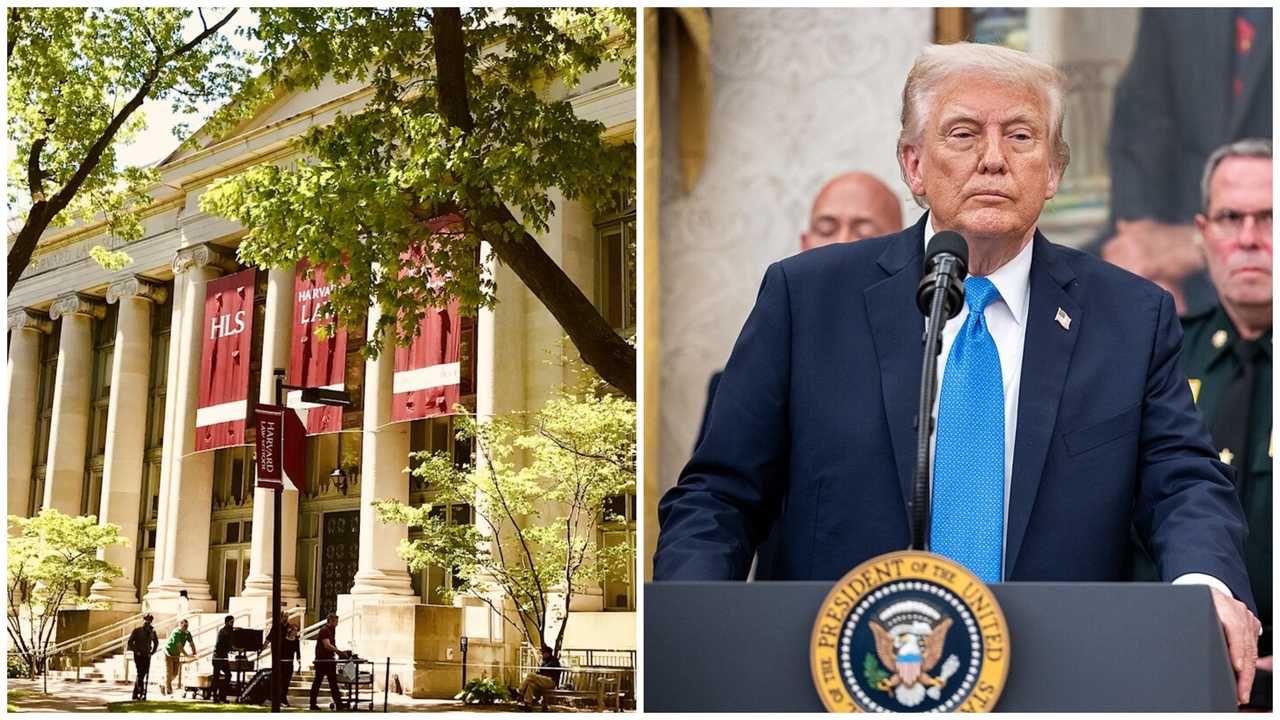Escalation in the Battle Between Homeland Security and Harvard University
The Department of Homeland Security (DHS) has taken a significant step in its ongoing dispute with Harvard University by issuing subpoenas that require the institution to provide records related to its foreign student visa program. This development marks another phase in the growing tension between the federal government and universities regarding international students.
Harvard, which hosts over 7,000 international students, has characterized the legal action as an “unnecessary” political attack. Assistant Secretary Tricia McLaughlin expressed frustration with the university’s lack of cooperation, stating, “We tried to do things the easy way with Harvard. Now, through their refusal to cooperate, we have to do things the hard way.” She accused Harvard of allowing international students to abuse their visas and engage in activities that could promote violence and terrorism on campus.
The core issue at hand is the Student and Exchange Visitor Program (SEVP), which permits foreign nationals to study in the United States. DHS officials claim that Harvard has repeatedly ignored requests for information about student behavior and visa compliance since January 2020. In April, Homeland Security Secretary Kristi Noem formally asked Harvard to submit documents related to criminal activity and disciplinary issues involving foreign students. When the university refused, Noem ordered the termination of its SEVP certification in May.
Now, with the issuance of subpoenas, DHS is seeking internal communications, records, and any other relevant documents to support immigration enforcement efforts. In a recent Washington Post op-ed, Noem emphasized that Harvard had been given multiple chances to comply. After experiencing delays and refusals, she stated, “These subpoenas are the only option left.”
McLaughlin also warned that other colleges and universities should pay attention to this situation. “If Harvard won’t defend the interests of its students, then we will,” she said. However, Harvard has pushed back against the subpoenas, calling them unwarranted. The university stated in a statement, “The University will continue to cooperate with lawful requests and obligations.”
Harvard has framed the federal pressure campaign as politically motivated. The administration’s actions come as the university continues to defend itself and its community against what it sees as harmful government overreach. Harvard argues that the federal government is attempting to dictate whom private universities can admit and hire, as well as what they can teach. The university remains committed to protecting its community and its core principles against what it views as unfounded retribution.
The high-stakes standoff between Harvard and DHS could have far-reaching consequences beyond the university’s campus. International students make up a significant portion of enrollment at U.S. colleges, and DHS’s aggressive approach signals a broader effort to tighten oversight of student visa compliance nationwide.
While Harvard defends its academic freedom, DHS maintains that its actions are necessary to protect national security and uphold the law. Both sides appear to be locked in a conflict that could reshape the extent of government control over who American universities can accept and how they operate.
Key Points in the Conflict
- Subpoenas Issued: DHS has issued subpoenas to Harvard, demanding records related to its foreign student visa program.
- Accusations of Visa Abuse: Officials allege that Harvard allowed international students to misuse their visas and engage in activities promoting violence and terrorism.
- SEVP Certification Termination: Following Harvard’s refusal to comply with requests for information, DHS terminated its SEVP certification.
- Political Motivation Claimed: Harvard argues that the federal government’s actions are politically motivated and an overreach into academic freedom.
- Broader Implications: The conflict highlights a larger debate about the role of the federal government in overseeing student visa compliance and university operations.
This ongoing dispute underscores the complex relationship between federal agencies and educational institutions, raising important questions about the balance between national security, academic freedom, and institutional autonomy.







